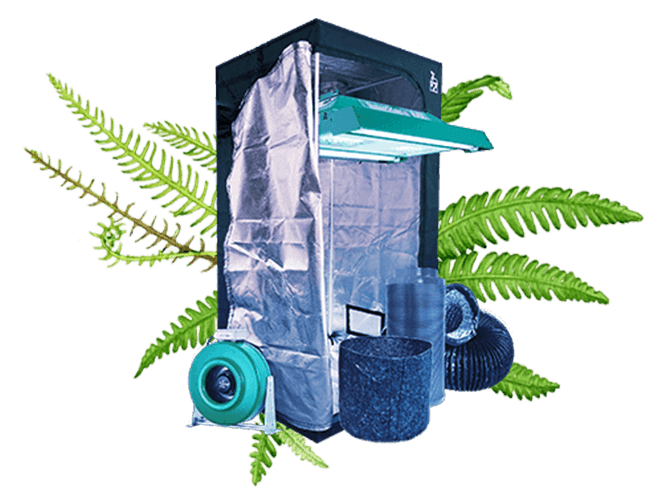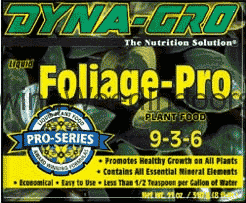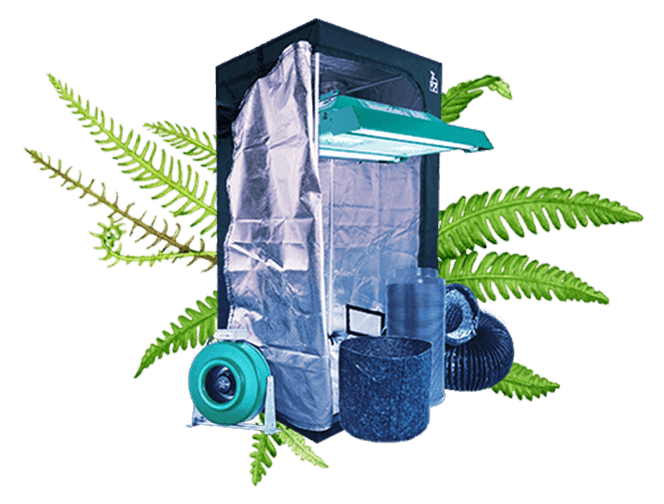Cannabis News
Defendants Move to Dismiss SEC’s Stock Promotion Scheme Lawsuit
Published
1 year agoon
By
admin
Last November, I wrote this post about a recent case filed by the Securities and Exchange Commission naming cannabis industry players for an alleged stock promotion scheme (or, as some call them, anti-touting violations). Last month, the primary individual defendant, Jonathan Mikula, filed a Motion to Dismiss the claims against him. The other individual defendant, Christian Fernandez, filed his own Motion to Dismiss shortly after.
The case is one to watch given its potential impact on the cannabis industry at large – especially in light of Mikula’s pending Motion to Dismiss – which argues, in part, that the SEC must prove a specific scienter requirement to successfully plead their securities violation claims against him.
What is a stock promotion scheme?
To recap, stock promotion schemes involve scenarios where public companies hire promoters or marketing firms to generate publicity for their stocks, and those promoters or marketing firms publish articles boosting those stocks – while failing to publicly disclose that they’re receiving payments from the companies. Those writers will post seemingly unbiased, glowing articles or reviews about the companies when they’re really nothing more than paid advertisements. Sometimes, the number of articles can get into the hundreds. And sometimes, the articles even go so far as to state the writers had not been compensated by the companies they’re writing about, when they in fact were.
The SEC v. Mikula, et al. Complaint
The Complaint at issue alleges Mikula unlawfully promoted the securities of four issuers without disclosing the fact that he was paid for those promotions. As one example – one of his articles stated, on behalf of Elegance Brands, that its CBD product, Gorilla Hemp, was retailing for $3.95 per can and could ultimately yield Elegance Brands a 2,630% price increase. It also claimed distribution agreements were in place which could potentially increase Elegance Brands’ share price by 9,900% in five years. He presented his “recommendations” to therefore invest in Elegance Brands as unbiased and not paid for, even though he actually was compensated via cash and “extravagant expenses.”
Mikula’s associates, which include Fernandez, were also charged for acting as middlemen. The SEC alleged they arranged to receive a percentage of investor funds under the guise of “consulting agreements” with the companies.
The Defendants’ positions
Between the filing of the Complaint and December 2022, most of the parties agreed to settle with the SEC by agreeing to permanent injunctions (meaning, they agreed to a laundry list of things they can never do again, starting immediately). Monetary penalties ranged from the $100,000s to the $700,000s. And, the individuals agreed to various bans from serving as an officer and director of any company.
However, Mikula and Fernandez chose to file Motions to Dismiss instead. In broad strokes, Mikula’s Motion to Dismiss is interesting – it argues the SEC failed to plead all facts required by the statute to allege an “anti-touting” violation. Mikula’s position is that this failure impacts all five claims for relief against Mikula:
- Violations of Section 10(b) of the Exchange Act and Rule 10b-5(a) and (c)
- Violations of Section 10(b) of the Exchange Act and Rule 10b-5(b)
- Violations of Section 17(a)(1) and (3) of the Securities Act
- Violations of Section 17(a)(2) of the Securities Act
- Violations of Section 17(b) of the Securities Act
He cites Section 17(b) of the Securities Act (15 U.S.C. section 77q(b)), which provides:
“It shall be unlawful for any person, … to publish, give publicity to, or circulate any notice, circular, advertisement, newspaper, article, letter, investment service, or communication which, … describes such security for a consideration received or to be received, directly or indirectly, from an issuer, underwriter, or dealer, without fully disclosing the receipt …”
Mikula’s position is that the SEC has done nothing more than quote buzzwords of the statute as a legal conclusion – it wholly fails to factually allege that Mikula published articles about the stocks “for a consideration received” from the issuers. His position is that receiving payment, even from an issuer, isn’t enough – there must be a causal element demonstrating that the article’s publishing occurred “for the consideration received.” Here, the SEC’s allegations within the Complaint do not specifically allege that the issuers’ money caused Mikula’s publication.
Should scienter be required?
Of course, this essentially amounts to a position that scienter should be pleaded as an additional element of anti-touting allegations. Mikula’s Motion to Dismiss notes the Supreme Court and Ninth Circuit have not ruled on the exact question of whether the SEC must plead and prove scienter to state a violation of Section 17(b). However, relevant case law certainly has impliedly inserted an element of fraudulent intent in prior situations. And, Mikula argues that the core conduct is analogous to the federal bribery criminal statute where the Supreme Court implied a requirement that there be a showing that a defendant acted “corruptly.”
Secondarily, his Motion to Dismiss also generally argues the SEC failed to plead their fraud claims with particularity, and the SEC proceeded in an improper venue (or the case should be transferred to a more convenient forum for the remaining defendants). Fernandez’s Motion to Dismiss makes similar claims.
Conclusion
While the SEC’s pursuit of stock promotion schemes is no new development, their attention to the cannabis industry makes sense in light of the fact that securities violations (and associated lawsuits) have abounded for years, and the public is increasingly interested in both consuming and investing in the space. This case is certainly one to be watched – both as a potential cautionary tale and as potentially precedent-setting in securities law.
In terms of being a cautionary tale, this case serves as a good reminder that the SEC considers stock promotion schemes to be a huge threat to the investing public. In 2017, Melissa Hodgman, then Associate Director of the SEC’s Division of Enforcement, was quoted as stating “Our markets cannot operate fairly when there are deliberate efforts to reach prospective investors with positive articles about a stock while hiding that the companies paid for those articles.” To ensure that purportedly objective investment information is what it claims to be, the SEC has historically settled for high amounts of disgorgement or penalties, as well as injunctive relief.
In terms of being potentially precedent-setting in securities law, Mikula’s position that the SEC must specifically plead a scienter requirement is not squarely addressed by the courts. He is asking the Court to demand the SEC prove he acted with the requisite scienter by proving he had a certain fraudulent state of mind, i.e., intending to mislead the investing public. While it’s up for debate on whether this should be required (especially in order to get past just the pleadings stage), plenty of law in analogous situations do require a high bar in demonstrating scienter to avoid early dismissal (such as fraudulently inducing a shareholder to buy or retain shares or insider trading).
If the Court is sympathetic to Mikula’s position, it may make for significant case law that may make the SEC’s job of pursuing stock promotion schemers much more difficult. This would essentially create an additional factor the SEC to prove – scienter – which is often a fact-intensive inquiry that is difficult to establish, especially in advance of discovery.
You may like
Cannabis News
Why You Shouldn’t Vote for Kamala Harris Just Because of Her Position on Cannabis- Banana in the Tailpipe, Again?
Published
2 days agoon
July 25, 2024By
admin

Why you shouldn’t base your vote on Harris’ Cannabis Stance
As a long-time observer of the political circus, I’ve seen my fair share of grand promises and lackluster deliveries. It’s an age-old dance: politicians, with their eyes on the prize, will say just about anything to secure your vote. They’ll promise the moon, the stars, and a side of universal healthcare, only to serve up a watered-down version of their campaign pledges once in office. It’s not necessarily malicious; it’s just the nature of the beast we call politics.
Now, with Biden stepping aside and rumors swirling about his health, all eyes are on Kamala Harris as the potential next Democratic presidential candidate. I’ve been hearing a lot of chatter, especially in cannabis circles, about throwing support behind Harris if she promises to legalize weed. And I get it, I really do. Cannabis reform is a critical issue for many of us.
But here’s where I need to pump the brakes and offer a word of caution: basing your vote on a single issue, especially one as prone to political flip-flopping as cannabis legalization, is a risky game. Remember the Biden-Harris ticket’s promises of criminal justice reform? How many people actually walked free from cannabis possession charges? The answer might disappoint you.
Before you pin all your hopes on Harris’s cannabis stance, let’s take a closer look at her history with the issue and why political promises, especially when it comes to weed, should be taken with a hefty dose of skepticism. After all, in the world of politics, today’s firm stance could be tomorrow’s convenient pivot.
As we dive deep into Kamala Harris’s political career, it’s a tale of evolving stances and convenient shifts that mirror the changing tides of public opinion on cannabis. Let’s start at the beginning, shall we?
During her tenure as California’s Attorney General from 2011 to 2017, Harris oversaw the conviction of nearly 2,000 people on marijuana-related charges. That’s right, the same woman now championing cannabis reform was once responsible for putting people behind bars for the very thing she now supports legalizing. It’s a stark reminder of how quickly political winds can change – or how quickly politicians can change with them.
Fast forward to the 2020 Democratic primaries, and we see a different Harris. Despite her initial buzz as a top contender, her campaign fizzled out faster than a poorly rolled joint. She dropped out before the Iowa caucuses, trailing far behind other candidates. It was a humbling experience that likely prompted some serious strategizing about her political future.
Then came the VP selection. Suddenly, Harris found herself on a ticket with Joe Biden, a man who had built much of his early career on being tough on drugs. It’s worth noting that Biden, too, has done some impressive political gymnastics on this issue. From being a key architect of punitive drug laws to now pardoning federal marijuana possession convictions, Biden’s evolution mirrors Harris’s own pivot.
As a Senator, Harris did introduce pro-cannabis legislation. The Marijuana Opportunity Reinvestment and Expungement (MORE) Act was a step in the right direction, aiming to decriminalize marijuana at the federal level. But let’s be real – introducing a bill is a far cry from getting it passed, especially when you’re no longer in the legislative branch.
Recently, Harris has been vocal about cannabis reform. She’s called for speeding up the reclassification of marijuana and has stated that “nobody should have to go to jail for smoking weed.” It’s a far cry from her days as AG, isn’t it?
But here’s where the rubber meets the road – or should I say, where the joint meets the lips. Despite all the big talk from the Biden-Harris administration about reform, what we’ve actually seen is disappointingly little. In four years, with a Democratic majority, they’ve failed to pass any significant cannabis legislation. Instead, we’re left with a proposal to reschedule cannabis to Schedule III – a move that feels more like a bone thrown to Big Pharma than true reform for the people.
And now, with the rescinding of the Chevron Doctrine, even this watered-down attempt at reform is likely to be tied up in legal battles for years. It’s a bureaucratic nightmare that does little to address the real issues faced by cannabis users and those imprisoned for marijuana offenses.
Here’s the kicker – this isn’t even the reform that most cannabis advocates want. We’re not looking for a slight shuffling of bureaucratic categories. We want full descheduling. We want cannabis treated like the plant it is, not a controlled substance. Anything short of that is just maintaining the status quo with a slightly friendlier face.
So, when we look at Harris’s cannabis stance, let’s not forget this context. It’s a stance that has conveniently evolved with public opinion, but still falls short of meaningful change. It’s a reminder that in politics, what’s promised on the campaign trail often bears little resemblance to what’s delivered in office.
As someone who’s been around the political block a few times, I’ve seen far too many people fall into the trap of single-issue voting. It’s understandable – we all have causes close to our hearts, issues that ignite our passions. For some, it’s cannabis legalization; for others, it might be gun rights or abortion. But here’s the hard truth: voting based on a single issue is like buying a car solely because you like its color.
Politicians, my friends, don’t exist in a vacuum. They’re part of a larger system, a complex web of party politics, special interests, and power dynamics. When you vote for a candidate based on their stance on cannabis, you’re not just getting their weed policy – you’re getting the whole package. And let me tell you, that package often includes a lot of things you might not be so keen on.
Take a step back and look at the bigger picture. Both major parties, despite their apparent differences, often align on issues that directly impact our daily lives. They’re both pro-war, pro-big pharma, pro-big banks. They might squabble over social issues, but when it comes to the core economic and foreign policies that shape our world, they’re often two sides of the same coin.
This is why we desperately need more diversity in our political system. The two-party structure is a relic that’s long outlived its usefulness. It pits American against American, reducing complex issues to simplistic “us vs. them” narratives. It’s a system that thrives on division, not unity.
But here’s where I really want you to pay attention: if you want to see real change, start local. National elections might get all the glitz and glamour, but the nitty-gritty work of democracy happens in your town halls, your city councils, your state legislatures. That’s where policies that directly affect your daily life are hammered out. Want to see cannabis reform? Start by engaging with your local government.
The folks in Washington? They’re in a different world. They’re surrounded by lobbyists, insulated from the day-to-day struggles of average Americans. They’re more likely to hear the concerns of a pharmaceutical CEO than those of a small-time cannabis grower or a patient seeking alternative medicine.
So here’s my advice: break free from party loyalty. Look at the facts, examine the principles behind the policies. Most importantly, judge politicians not just by their words, but by their actions. How often do they follow through on their promises? How consistent are they in their principles?
Critical thinking is key here. Don’t just swallow what the media or the politicians are feeding you. Question everything. Analyze. Compare. And remember, your vote is precious – it’s your voice in this democracy. Don’t give it away based on a single issue or a catchy slogan.
In the end, politics is about the big picture. It’s about the kind of society we want to live in, the values we want to uphold. So the next time you’re in that voting booth, think beyond the single issue. Look at the whole cake, not just the cherry on top. Your future – our future – depends on it.
KAMALA ON CANNABIS REFORM, READ ON…
Cannabis News
A Beginner’s Guide to Setting Up a Cannabis Grow Tent » How to Grow Weed Indoors
Published
4 days agoon
July 22, 2024By
admin
Cannabis cultivation at home has gained immense popularity, particularly with the legalization of recreational and medical marijuana in many regions, so reading A Beginner’s Guide to Setting Up a Cannabis Grow Tent will be helpful.
A grow tent is an ideal solution for those looking to create a controlled environment for their cannabis plants. This beginner’s guide to setting up a cannabis grow tent will walk you through the essential steps and considerations to ensure a successful and fruitful grow.
Why Choose a Grow Tent?
A grow tent offers numerous advantages, including:
- Controlled Environment: Grow tents allow you to control light, temperature, humidity, and airflow, creating optimal conditions for your plants.
- Pest and Odor Management: The enclosed space helps keep pests out and contains odors, making indoor cultivation more manageable.
- Discreet and Space-Efficient: Grow tents come in various sizes, fitting easily into small apartments or spare rooms.
Essential Components for Your Grow Tent
Before setting up your grow tent, it’s crucial to gather all the necessary components:
- Grow Tent: Choose a tent size that fits your space and growing needs. Common sizes include 2×2, 3×3, and 4×4 feet.
- Grow Lights: LED, HID (High-Intensity Discharge), and CFL (Compact Fluorescent Lights) are popular choices. LED lights are energy-efficient and produce less heat.
- Ventilation System: Includes inline fans, ducting, and carbon filters to ensure proper airflow and odor control.
- Grow Medium: Soil, coco coir, or hydroponic systems. Each medium has its pros and cons.
- Nutrients: Essential for plant growth. Choose a nutrient line designed for cannabis.
- Pots or Containers: Fabric pots are popular for their breathability and drainage.
- Thermometer and Hygrometer: To monitor temperature and humidity levels.
- Timers: To automate light schedules.
- pH and EC Meters: To test water and nutrient solution quality.
Step-by-Step Guide to Setting Up Your Grow Tent
1. Choose the Right Location
Select a location that is discreet, has access to electricity, and can handle occasional spills or water leaks. Ensure the area has enough space to accommodate your tent and allow for easy access.
2. Assemble Your Grow Tent
Follow the manufacturer’s instructions to assemble your grow tent. Ensure all zippers, seams, and poles are securely in place. Check for light leaks, as even small leaks can disrupt your plants’ light cycle.
3. Install the Grow Lights
Mount your grow lights at the appropriate height above the canopy. LED lights typically need to be 18-24 inches above the plants, while HID lights require more distance due to their higher heat output. Connect your lights to a timer to automate the light cycle, providing 18 hours of light and 6 hours of darkness during the vegetative stage, and 12 hours of light and 12 hours of darkness during the flowering stage.
4. Set Up the Ventilation System
Proper ventilation is crucial for maintaining temperature, humidity, and CO2 levels. Install an inline fan and ducting to exhaust hot air from the tent. Position the fan near the top of the tent where heat accumulates. Connect the ducting to a carbon filter to eliminate odors. Consider adding an oscillating fan inside the tent to promote air circulation and strengthen plant stems.
5. Prepare the Growing Medium
Fill your pots or containers with the chosen growing medium. If using soil, opt for a high-quality, well-draining mix. For coco coir or hydroponic systems, ensure the medium is pre-soaked and buffered as needed. Place your containers inside the grow tent, leaving enough space between them for air circulation and growth.
6. Plant Your Cannabis Seeds
Germinate your cannabis seeds using your preferred method, such as the paper towel method or directly planting them in the growing medium. Once germinated, plant the seeds in your prepared pots, covering them lightly with soil or medium.
7. Water and Feed Your Plants
Water your plants with pH-balanced water (6.0-7.0 for soil, 5.5-6.5 for coco coir and hydroponics). Start with small amounts and gradually increase as the plants grow. Introduce nutrients according to the manufacturer’s guidelines, starting with a quarter to half strength for young plants and increasing as they mature. Monitor the plants for signs of nutrient deficiencies or excesses.
8. Monitor Temperature and Humidity
Maintain optimal temperature (70-85°F) and humidity levels (40-70%) using a thermometer and hygrometer. Adjust the ventilation system and use humidifiers or dehumidifiers as needed to keep conditions within the ideal range.
9. Train and Prune Your Plants
Training techniques like topping, low-stress training (LST), and the Screen of Green (ScrOG) method can maximize light exposure and promote even canopy growth. Prune lower leaves and branches to improve airflow and focus energy on bud development.
10. Monitor and Adjust Light Height
As your plants grow, adjust the height of your grow lights to prevent light burn and ensure even coverage. Follow the manufacturer’s recommendations for light distance and intensity.
11. Monitor pH and EC Levels
Regularly test the pH and electrical conductivity (EC) of your water and nutrient solution to ensure they are within the optimal range. Adjust as needed to prevent nutrient lockout and deficiencies.
12. Harvest Your Cannabis Plants
When the plants reach maturity, typically 8-12 weeks into the flowering stage, it’s time to harvest. Look for signs of readiness, such as the color of the pistils and trichomes. Cut the plants at the base and hang them upside down in a dark, well-ventilated area to dry. After drying, trim the buds and cure them in airtight containers to enhance flavor and potency.
Tips for a Successful Grow Tent Experience
- Start Small: Begin with a small tent and a few plants to learn the basics before scaling up.
- Keep a Grow Journal: Document your grow, noting dates, feeding schedules, and observations to help you learn and improve.
- Research and Learn: Continuously educate yourself about cannabis cultivation techniques and stay updated with the latest trends and technologies.
- Be Patient: Growing cannabis requires time and attention. Be patient and consistent in your care routine.
- Join Online Communities: Engage with other growers on forums and social media platforms to share experiences and seek advice.
Common Mistakes to Avoid
- Overwatering: Allow the growing medium to dry out slightly between watering to prevent root rot.
- Incorrect pH Levels: Regularly test and adjust pH to ensure nutrient availability.
- Light Leaks: Seal any light leaks to maintain the correct light cycle for your plants.
- Overfeeding: Start with lower nutrient concentrations and increase gradually to avoid nutrient burn.
- Poor Ventilation: Ensure adequate airflow to prevent mold and mildew growth.
Conclusion
Setting up a cannabis grow tent can be a rewarding and enjoyable experience for beginners. By following this guide and paying close attention to the needs of your plants, you can create a thriving indoor garden and enjoy the fruits of your labor. Remember to start small, stay informed, and be patient as you develop your skills as a cannabis cultivator. Happy growing!
Please Share This Important Article
Cannabis News
Nutrient Management for Indoor Cannabis Plants Tips and Tricks » How to Grow Weed Indoors
Published
4 days agoon
July 22, 2024By
admin
Growing cannabis indoors has become increasingly popular due to the control it offers over the growing environment, thus Nutrient Management for Indoor Cannabis Plants is important.
One of the most critical aspects of successful indoor cannabis cultivation is proper nutrient management. Understanding the right nutrients and their application can significantly impact the health and yield of your plants. This article provides comprehensive tips and tricks for effective nutrient management for indoor cannabis plants.
Understanding Cannabis Nutrients
Cannabis plants require a variety of nutrients to thrive, which are typically categorized into macronutrients and micronutrients.
Macronutrients
- Nitrogen (N): Essential for vegetative growth, nitrogen plays a vital role in photosynthesis and the development of plant tissues.
- Phosphorus (P): Crucial during the flowering stage, phosphorus supports root development and energy transfer within the plant.
- Potassium (K): Potassium aids in water uptake, enzyme activation, and overall plant health, enhancing the plant’s resistance to diseases.
Micronutrients
- Calcium (Ca): Important for cell wall structure and growth.
- Magnesium (Mg): Central to chlorophyll production and photosynthesis.
- Sulfur (S): Vital for amino acid production and enzyme function.
- Iron (Fe), Manganese (Mn), Zinc (Zn), Copper (Cu), Boron (B), Molybdenum (Mo), and Chlorine (Cl): These trace elements are required in smaller quantities but are essential for various biochemical processes.
Choosing the Right Nutrients
Organic vs. Synthetic Nutrients
- Organic Nutrients: Derived from natural sources, organic nutrients improve soil health and promote beneficial microbial activity. They release nutrients slowly, reducing the risk of nutrient burn.
- Synthetic Nutrients: These are chemically formulated to provide immediate nutrient availability. They are highly concentrated and can be precisely measured and adjusted.
Nutrient Ratios
During different growth stages, cannabis plants require varying nutrient ratios:
- Vegetative Stage: Higher nitrogen levels to support leaf and stem growth. A typical N-P-K (Nitrogen-Phosphorus-Potassium) ratio for this stage might be 3-1-2.
- Flowering Stage: Increased phosphorus and potassium to support bud development. An ideal N-P-K ratio might be 1-3-2.
Tips for Effective Nutrient Management
1. Start with a Quality Growing Medium
The growing medium significantly impacts nutrient availability. Common choices include soil, coco coir, and hydroponics:
- Soil: Rich in organic matter, soil can retain nutrients and provide a buffering effect.
- Coco Coir: Offers good aeration and water retention, but requires additional calcium and magnesium.
- Hydroponics: Provides direct access to nutrients in water, allowing precise control but requiring diligent monitoring.
2. pH Management
Maintaining the correct pH level is crucial for nutrient uptake. For soil, aim for a pH of 6.0-7.0, while hydroponics and coco coir should be between 5.5-6.5. Use pH meters or test kits to regularly check and adjust the pH.
3. Gradual Nutrient Introduction
Introduce nutrients gradually, especially for seedlings and young plants. Start with a quarter to half of the recommended dose and gradually increase as the plants mature.
4. Monitor for Nutrient Deficiencies and Toxicities
Regularly inspect your plants for signs of nutrient deficiencies (yellowing leaves, stunted growth) and toxicities (leaf burn, nutrient lockout). Early detection allows for timely adjustments.
5. Use a Feeding Schedule
Establish a consistent feeding schedule based on the plant’s growth stage. Many growers use a weekly schedule, alternating between feeding and watering.
6. Flush the Plants
Flushing involves running plain water through the growing medium to remove excess salts and nutrient buildup. This is particularly important before the harvest to improve the taste and quality of the buds.
7. Supplement with Beneficial Microbes
Inoculating the growing medium with beneficial microbes can enhance nutrient availability and promote plant health. Products containing mycorrhizal fungi and beneficial bacteria can be highly effective.
Advanced Tips for Optimizing Nutrient Management
1. Tailor Nutrients to Specific Strains
Different cannabis strains may have varying nutrient requirements. Researching the specific needs of your chosen strain can help optimize growth and yield.
2. Employ Foliar Feeding
Foliar feeding involves spraying a nutrient solution directly onto the leaves. This can provide a quick nutrient boost and correct deficiencies rapidly. However, it should complement, not replace, root feeding.
3. Utilize Automated Feeding Systems
Automated feeding systems can ensure consistent nutrient delivery, particularly in hydroponic setups. These systems can be programmed to provide precise amounts of nutrients at scheduled intervals.
4. Integrate CO2 Enrichment
Enriching the grow room with CO2 can enhance photosynthesis and nutrient uptake, leading to faster growth and higher yields. Ensure proper ventilation and monitor CO2 levels to avoid overexposure.
5. Experiment with Additives
Various additives, such as amino acids, enzymes, and vitamins, can boost plant health and productivity. Experimenting with different products can help identify what works best for your setup.
Troubleshooting Common Nutrient Issues
1. Nutrient Burn
- Symptoms: Leaf tips turning brown and crispy.
- Solution: Reduce nutrient strength and flush the growing medium with plain water.
2. Nutrient Lockout
- Symptoms: Yellowing leaves despite adequate feeding.
- Solution: Check and adjust pH levels, and flush the medium to remove salt buildup.
3. Nutrient Deficiencies
- Nitrogen Deficiency: Yellowing lower leaves.
- Phosphorus Deficiency: Dark, discolored leaves with purple stems.
- Potassium Deficiency: Yellowing edges and brown spots on leaves.
Regularly monitoring and adjusting your nutrient regimen can prevent these issues from escalating.
Conclusion
Effective nutrient management is essential for the successful cultivation of indoor cannabis plants. By understanding the specific needs of your plants and tailoring your nutrient regimen accordingly, you can maximize growth and yield. Remember to maintain the right pH levels, introduce nutrients gradually, and monitor your plants closely for signs of deficiencies and toxicities. Employing advanced techniques such as foliar feeding, automated systems, and CO2 enrichment can further optimize your results. With careful attention and a proactive approach, you can ensure your indoor cannabis plants thrive, producing high-quality, potent buds.
Please Share This Important Article

Pot prohibition costs Florida at least $200 million per year

Union’s initiative to organize Oregon marijuana workers nears ballot

Cannabis and Mental Health: Recent Research and Implications

Why You Shouldn’t Vote for Kamala Harris Just Because of Her Position on Cannabis- Banana in the Tailpipe, Again?

Your Trusted Amsterdam Seed Bank – Powered by Mother Nature, Breeding since 1996

Sam Hilliard’s clutch homer, Ezequiel Tovar’s walk-off send Rockies to win over Red Sox in 12 innings

Keeler: Trevor Story returned to Denver, but it was Rockies fan, transplant survivor who rocked Coors Field

As Trevor Story returns to Coors Field for first time since signing with Red Sox, injury-riddled shortstop remains confident he can regain old form

More RTD "slow zones" added as summer repairs move forward

Canadian wildfire smoke triggers poor air quality, health advisories in Colorado

Distressed Cannabis Business Takeaways – Canna Law Blog™

United States: Alex Malyshev And Melinda Fellner Discuss The Intersection Of Tax And Cannabis In New Video Series – Part VI: Licensing (Video)

What you Need to Know

Drug Testing for Marijuana – The Joint Blog

Cannabis, alcohol firm SNDL loses CA$372.4 million in 2022

NCIA Write About Their Equity Scholarship Program

It has been a wild news week – here’s how CBD and weed can help you relax

City Of Oakland Issues RFP For Employee Training Programs

A new April 20 cannabis contest includes a $40,000 purse

Your Go-To Source for Cannabis Logos and Designs
Trending
-

 Cannabis News1 year ago
Cannabis News1 year agoDistressed Cannabis Business Takeaways – Canna Law Blog™
-

 One-Hit Wonders1 year ago
One-Hit Wonders1 year agoUnited States: Alex Malyshev And Melinda Fellner Discuss The Intersection Of Tax And Cannabis In New Video Series – Part VI: Licensing (Video)
-

 Cannabis 1011 year ago
Cannabis 1011 year agoWhat you Need to Know
-

 drug testing7 months ago
drug testing7 months agoDrug Testing for Marijuana – The Joint Blog
-

 Marijuana Business Daily1 year ago
Marijuana Business Daily1 year agoCannabis, alcohol firm SNDL loses CA$372.4 million in 2022
-

 Education1 year ago
Education1 year agoNCIA Write About Their Equity Scholarship Program
-

 Cannabis1 year ago
Cannabis1 year agoIt has been a wild news week – here’s how CBD and weed can help you relax
-

 Education1 year ago
Education1 year agoCity Of Oakland Issues RFP For Employee Training Programs







